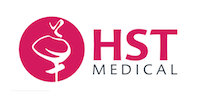
Eczema is a non-contagious condition where the skin becomes red, itching, with little blisters which gives out clear liquid when broken, followed by crusting, and later, scaling and thickening of skin and pigmentation. It often appears on the arms, legs (especially the inner creases of arms and legs), palms, face and neck. Itch from eczema can be severe and can interrupt sleep. Upon scratching, broken skin can lead to infection.
Childhood eczema often develops before the child reaches 1 year old, with some others before reaching age of 5. Children whose parents have history of allergy such as asthma or allergic rhinitis also have a higher chance of getting eczema. Eczema can also develop in adolescents and adults. Whichever age the onset, eczema should be treated as early as possible to prevent it from aggravating.
Causes of Eczema
The exact cause of eczema is not known, however, there are many triggers that can cause a flare up or aggravate the condition. Below are some of them:
- Food
The most common food items to cause a reaction are milk, wheat, egg, soy, seafood and nuts. Excessively sweet or spicy food, oily food, cold drinks, and over-indulgence in rich food can also aggravate symptoms of eczema. - Contact triggers
Dust, dust mite, washing detergents, soaps, shampoos, mold, grass and fur from pets, are some known triggers and aggravators. Skin-care products and cosmetics that contain perfume, preservative and alcohol are amongst them as well. Some people are also sensitive to synthetic materials or wool in their clothing. - Stress and late nights
Stress and late nights are found to be positively correlated with eczema symptoms. - Smoking and alcohol
Smoking and consumption of alcohol can also trigger or aggravate symptoms. - Environment and weather
Dryer air in air-conditioned room or in cold and dry weather can make the skin dry and worsen itch and discomfort. On the other hand, a hot and humid environment and sweating can also exacerbate symptoms. - Cyclical trigger
Some women experience more severe symptoms in the days before their period or during pregnancy.
Treatment with Western Medicine
In Western allopathic medicine, eczema is identified as an immune system disorder. Treatment of eczema aims to heal the skin, reduce symptoms, prevent skin damage, and prevent flare ups. Common treatment methods include:
- Topical corticosteroid
- Oral corticosteroid in more severe cases
- Lotion or cream to alleviate skin dryness
- Oral antihistamine to relieve itch
- Antibiotics in cases where there is skin infection
- Topical calcineurin inhibitors
- Ultra-violet light therapy in severe cases where other treatments do not work
Treatment with Traditional Chinese Medicine (TCM)
As allopathic treatment targets at symptomatic relief and does not cure the disease, plus side effects tend to occur with prolonged use of Western medication, many eczema sufferers turn to natural medicine and alternative treatment options such as TCM.
For TCM, the goal in eczema’s treatment is to cure the disease permanently. Typically Chinese herbs are used, which comprise of herbs to alleviate symptoms such as reduce itch, and to address the root cause of the skin condition, which is often deeper imbalances or deficiencies in the body. Treatment of chronic eczema requires patience and perseverance as it usually takes months to heal completely and may require certain changes in lifestyle habits.
Below are some common TCM herbs used in the treatment of eczema:
- Herbs to alleviate heat and dampness
Heat symptoms show up as redness or inflammation of the skin and dampness manifests as small blisters which when scratched shows clear liquid inside. Herbs in this category include coptis rhizome (huang lian), sophora root (ku shen), dictamnus root bark (bai xian pi), red peony root (chi shao), etc. - Herbs to curb itch
Itch is represented by the wind pathogen in TCM. Herbs such as cicada molting (chan tui), Schizonepeta Stem (jing jie) and xanthium fruit (cang er zi) are a few herbs commonly used. - Herbs to detoxify the system
Detoxifying herbs arrests pathogens and cleans the blood. Forsythia fruit (lian qiao), honeysuckle flower (jin yin hua) and isatis leaf (da qing ye) are a few examples of detoxifying herbs used.
For treatment of chronic eczema, tonics are often added to strengthen the affected organs in order to prevent recurrences. For example, atractylodis rhizome (bai zhu) and codonopsis root (dang shen) are frequently used in cases where there is Spleen deficiency, whereas Chinese angelica (dang gui) and fleeceflower root (he shou wu) are used for those with Blood deficiency.
Conclusion
Treating and managing eczema can be a challenge for both the individual and family members. In conjunction with using medication, taking note of possible triggers and aggravators and relating them to flare ups and remissions, and subsequently making changes to one’s lifestyle can go a long way in its treatment and prevention of recurrences.
###

